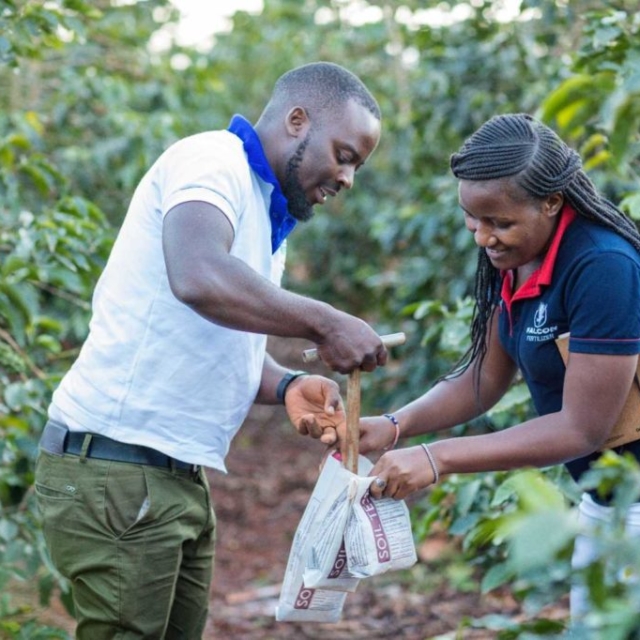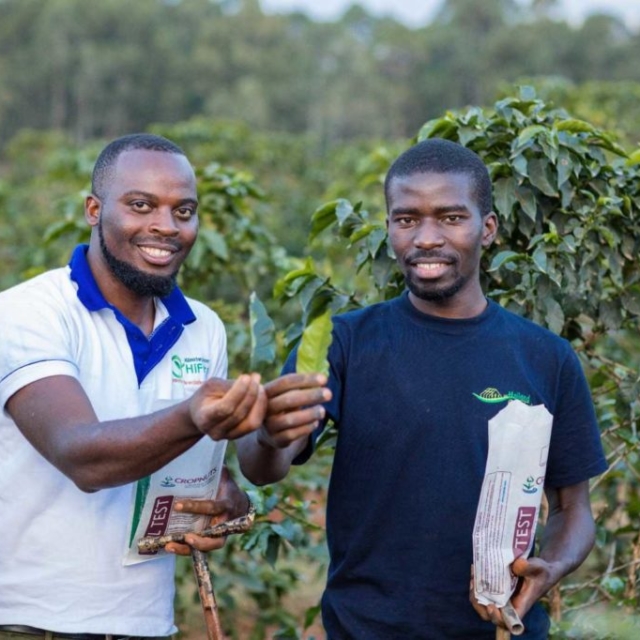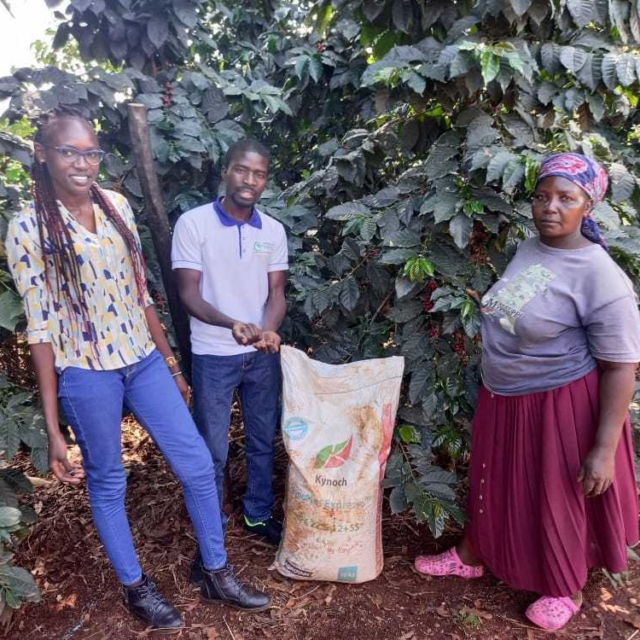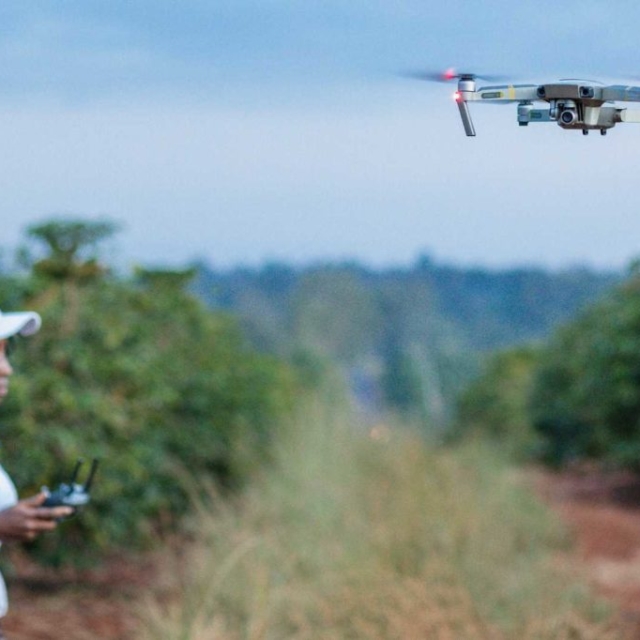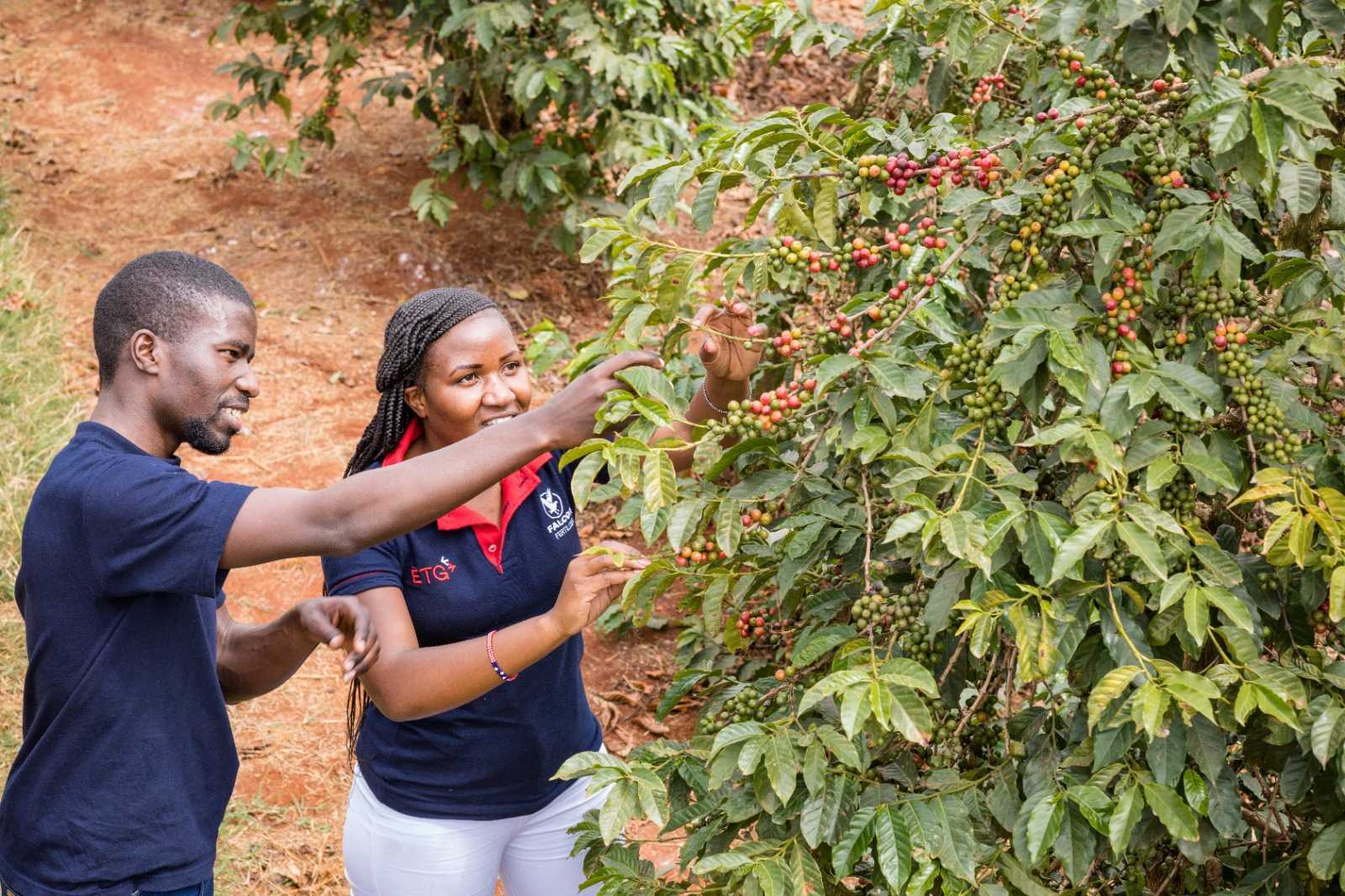
HiFarm Project
GOAL
Integrating the use of flying sensors, data analytics, nutritional advisory and climate smart inputs to boost the productivity of
60 farmers in Kenya’s tea, coffee and maize value chains.
LOCATION
Nakuru, Embu, Kiambu, and Limuru, Kenya
DURATION-
2021
-
2022
FARMERS
60
VALUE CHAINS
Coffee, Maize, Tea
PARTNERS
ETC Group (ETG), eco.business Fund Development Facility, HiView, FutureWater, Holland Greentech, ThirdEye Kenya
FUNDING
USD 267,000
HiFarm Project
To enhance productivity gains on existing farmland, improve yield estimation, and bolster risk management based on current levels of biomass, farm size, and cropping systems, the eco business Fund Development Facility Sub Saharan Africa (EBF SSA DF) and Export Trading Group (ETG) piloted a data-driven agricultural intensification project that informed climate-resilient strategies in agriculture and promoted climate-smart production practices among ETG’s farmers in Kenya. This was done by integrating the use of data analytics into ETG Kenya’s input supply and commodity sourcing plans for maize, coffee, and tea involving 20 lead farmers from each value chain in four counties in Kenya: Nakuru (maize), Kiambu (coffee), Embu (coffee) and Limuru (tea).
The project incorporated a unique blend of technology and expertise, utilising drones equipped with multispectral cameras, nutritional advisory services, climate-smart inputs, and comprehensive farmer training and coaching. Local partners included coffee estates, small-scale maize farmers, and tea grower associations.
Despite facing challenges such as unseasonal rains and COVID-19 restrictions, the project achieved notable outcomes. For Nakuru, Limuru and Embu a significant increase in total seasonal yield was noted. This indicates that the improved fertilizer inputs and farm management practices have increased the agricultural productivity of the farmers in the districts. Most farmers indicated realistic numbers and mentioned the positive impact the project had on their productivity, with results ranging between +23 and +38% increase in agricultural productivity.
Overall, the agricultural analysis showed the positive impact the HiFarm service had on the production of lead farmers. The information acquired by this project can be extrapolated to surrounding farmers to improve agricultural production in the surrounding areas. Through the pilot, the combination of nutritional analyses with crop stress maps from flying sensors was found to be scalable in Kenya.

